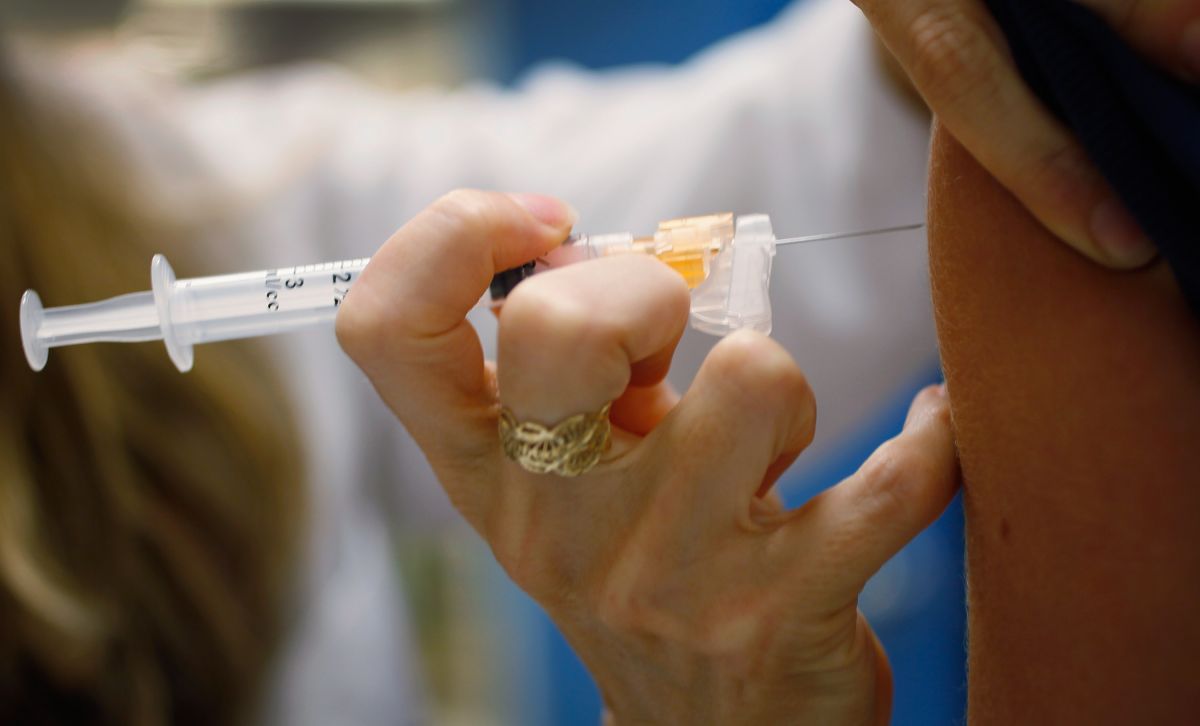
Jesus Diaz, a 61-year-old prediabetic, had waited months to get an appointment at a coronavirus vaccination site in the Rio Grande Valley region of Texas.
But when the undocumented Mexican immigrant came to the front of the University of Texas vaccination clinic line in the Rio Grande Valley last weekend, after a four-hour wait, orn staff member told him he would not be vaccinated.
“The vaccines here are exclusive to U.S. citizens and legal residents of that country,” Diaz told The Washington Post, a staff member told him. “We can’t help you. I’m sorry, but these are the rules.”
No proof of residency and citizenship is required to receive a dose of vaccine in Texas.
But Diaz still knew, he also feared that staff members could call the immigration authorities if he caused a scene, so after a brief discussion, he gave up his place in the line and left without being vaccinated.
“I felt so much shame and anger at the same time,” Diaz told The Washington Post. “I felt discriminated against, but I didn’t want to keep insisting.”
Racism, discrimination and health risks
Diaz was not alone. At least 14 people have been mistakenly rejected from university vaccination sites due to their residence or immigration status, a university spokesman told The Post, illustrating one of the many barriers undocumented Americans face in getting vaccinated.
Health experts say an avalanche of misinformation has targeted the undocumented community, Which also faces persistent fears that authorities may verify its migratory status in clinics.
Among Latino immigrants, false claims about vaccines are spreading as fast as the virus.
Since then, the university apologized for denying the vaccine doses to Diaz and other eligible patients, and added that his staff received incorrect instructions on how to interpret the state guide.
“We know he expects something better from us, and we deeply regret not maintaining our standard of excellence at a time when our community needs us most,” said John H. Krouse, dean of the medical school of the university, in a statement on Thursday.
>> Biden wants to make sure undocumented people get vaccinated and get help
>> Distrust of undocumented migrants complicates vaccination in southern states
>> Vaccinate also undocumented, the commitment of the Biden Administration
Undocumented immigrants if they are rejected for vaccines
The Joe Biden government has promised that undocumented immigrants will have the same access to coronavirus vaccines as citizens or legal residents. He also promised that the vaccination sites will be free immigration control zones.
But some states have already contradicted the Biden administration’s stance on the issue.
Last month, the governor of Nebraska, Pete Ricketts, Was criticized after saying that did not expect undocumented immigrants working in meat presence facilities to be vaccinated under the state program. Shortly afterwards, a Ricketts aide clarified his comments by pointing out that athose without legal status should wait at the end of the row.
Rejection and fear
UT Health Rio Gran Valley, with campus on the U.S.-Mexico border, was forced to apologize after Abraham Diaz tweeted on Feb. 20 that his father was denied a vaccine because he was undocumented.
Its history provoked criticism of UTRGV on social media and a protest of the Whole People’s Union, A community organization founded by the civil rights leader César Chávez, where Diaz is a staff member.
UT Health RGV said in a statement on Thursday that “We are currently targeting approximately 14 people who were affected by our mistakes,” and all were being rescheduled.
“We know he expects something better from us, and we deeply regret not maintaining our standard of excellence at a time when our community needs us most,” said UT Health RGV in the statement, Which followed an initial tweeted response to Diaz and an apology Saturday that LUPE said was inappropriate.
Update 1: @utrgv clearly discriminated my father bc from his immigration status. They have given doses of 20,000+, but imagine how few neglected ones were rejected. What my father wants is a statement that says vacancies will be vaccinated. https://t.co/S2ElmCWBva
– Abe Díaz (@_AbeDiaz_) February 21, 2021
But Diaz told The Post that he no longer wants to return to this place after the humiliating episode.
“I really don’t want to go there,” he said. “I’m ashamed to come back. I want to look for another option where the same thing doesn’t happen to me again.”
On Wednesday, the university issued a public notice promising that “UT Health RGV would not deny a vaccine to any eligible person based on the person’s residence or immigration status.” The university also encouraged anyone who has been previously denied the vaccine because of their residence or immigration status to contact the school to reschedule their appointments.
Diaz said he hopes his experience can teach other undocumented immigrants that if they speak out against injustices, they have a chance to change things.
“Make your voice heard and don’t be afraid,” he said.